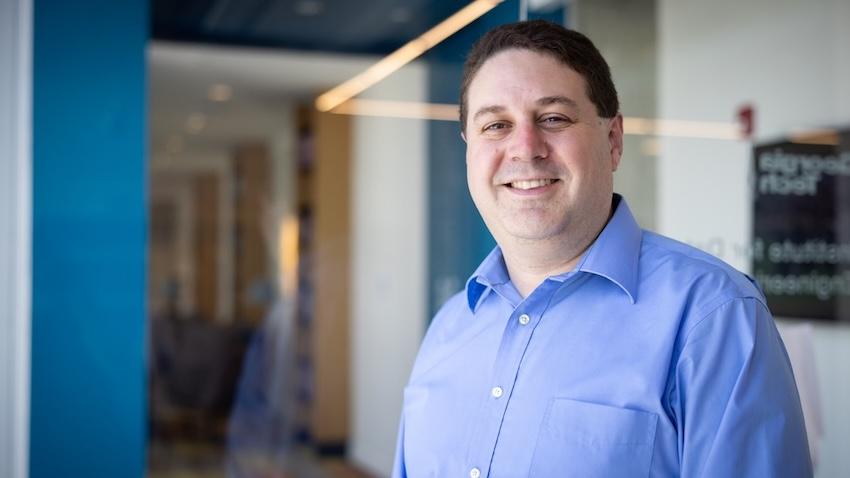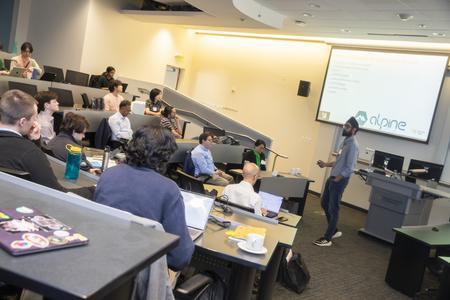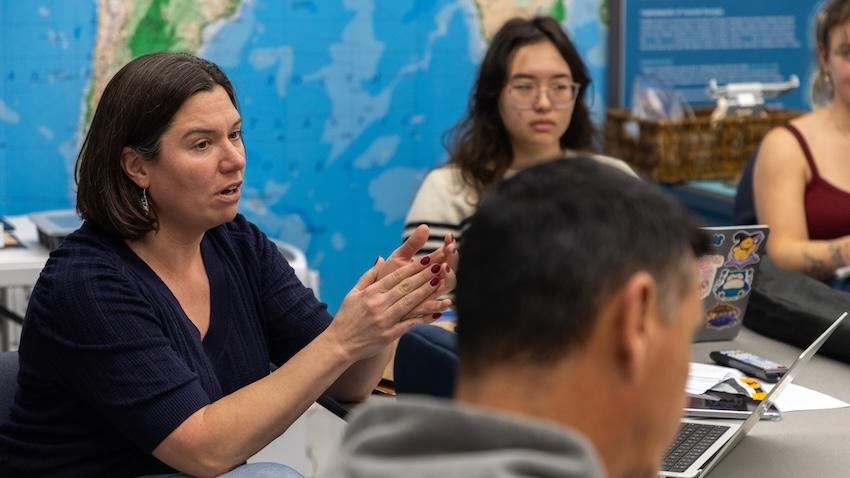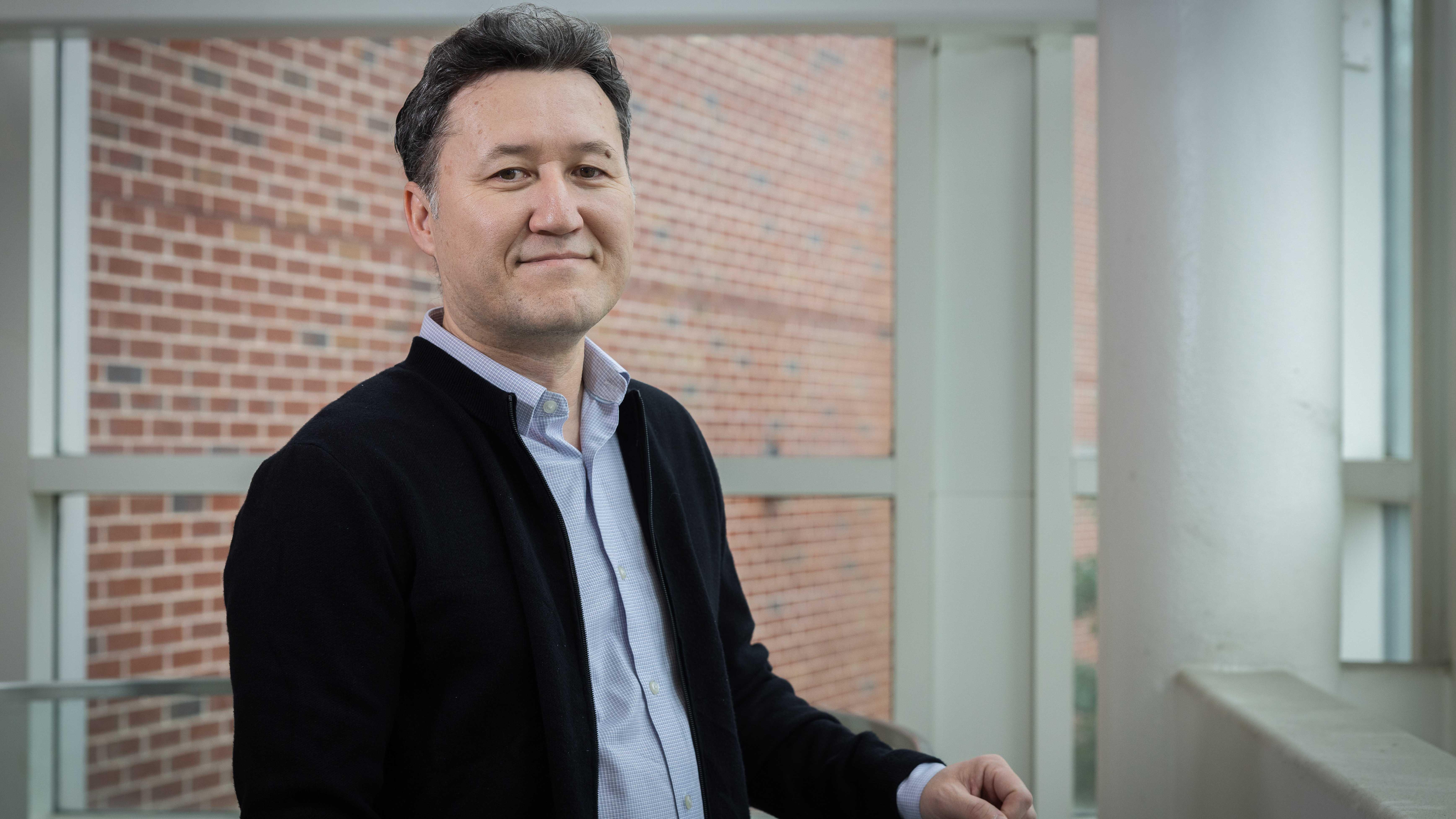
New Grant Renews Open-Source Program Office
A new six-figure grant ensures that Georgia Tech students and faculty continue to have access to vital open-source software resources.
The Open Source Program Office (OSPO) provides expert advice, training, and the latest information to students and faculty interested in open-source research and publishing.
The office was established in 2023 with funding from the Alfred P. Sloan Foundation for two years. A new $630,000 grant from the foundation will fund the OSPO through 2027.
OSPO Director Jeffrey Young said the office’s next phase will focus on establishing a permanent presence at Georgia Tech and continuing its collaborative efforts with the Georgia Tech Library, the Center for Scientific Software and Engineering (CSSE), and the Partnership for Advanced Computing Environment (PACE).
“We’ve spent time figuring out what people at Georgia Tech need from us,” Young said. “One of the things we found initially was that people really needed guidance on open-source licensing, so we did trainings and made documentation for that. Now, we are thinking of what Georgia Tech needs in the long term.”

In its first two years, the office has supported students and faculty with guidance, training sessions, a student internship program, and workshops. In partnership with the library, the OSPO created an archive of open-source programs to preserve software for future use.
A new focus for the OSPO is training on open-source artificial intelligence (AI) models, such as Meta’s Llama and IBM’s Granite. Open-source AI models are often not truly open-source because of the data and methods used to train them, but they do allow users to download and customize some components. Young said the OSPO will help students and faculty learn to use these rapidly evolving models and tools.
“There are a lot of AI tools that students have access to now, but there’s not a lot of training on the open and ethical way to use those tools,” Young said.
The OSPO will also continue its external open-source AI initiatives led by co-PI and Associate Director Fang Liu, as part of the Open Forum for AI. This collaborative, university-led effort aims to provide comprehensive, expert advice on AI for research, policy, and community engagement.
In the upcoming term, the office also plans to broaden its student education and outreach programs to accommodate more student participation in open-source projects. Its virtual summer internship program has been one of the office’s biggest achievements. Students in the program are matched with a mentor and an open-source code project. They also learn about best practices for open-source resources such as GitHub.
However, the program can accommodate only around 30 students, and it received over 200 applications this year. Young said they hope to develop more programming to better serve students year-round.
“Year after year we’ve seen this astronomical demand not only from students looking for summer positions, but students who are excited about working on open-source projects in general,” he said.


